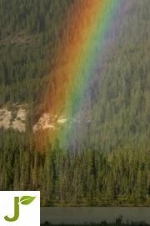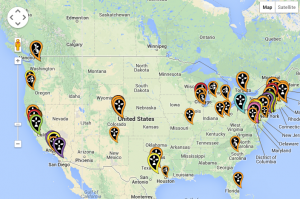Adults Subscribe
A selection of initiatives, blogs, resources and communities on Jewcology intended for use in engaging adults.
From the Blogs
R&R Shabbat at the JCC
R & R: Shabbat at The JCC is an antidote to our 24/7 lifestyle. Make your Shabbat afternoon special and share in our community with workshops in art, yoga, meditation, food, music, study sessions, film, performances, creative art projects, spa experiences, and indoor and outdoor play. Enjoy programs for both children and adults. R&R is an amazing weekly opportunity to be together as a family and as a community; it’s an incredible alternative to the typical New York Saturday and it is our gift to you. Join us for programs that respect all levels of observance. ...
Reject Keystone XL
Dec. 2, 2014 Thirteen Jewish organizations, under the umbrella of the Green Hevra, have issued the following joint statement today publicly calling on the U.S. government to reject the Keystone XL pipeline: It has become abundantly clear that we are consuming far too many fossil fuels. In this Sabbatical/Shmita year, when the Torah calls for deeper gentleness toward the Earth, we are especially conscious of the dangers to the Earth from the drilling, transporting and burning of tar-sands oil. The resources that would be devoted to the Keystone XL ...
Parshat Chayyei Sarah: The Answering of Our Prayers Before We Speak them—Especially Outdoors
by Rabbi Katy Z. Allen Connections. Everything is about connections. Connections across space. Connections across time. Connections in thought and spirit. Connections between. Connections among. Just connections, nothing else. That's what prayer is about. That is what faith is about. That is what life is about. In this week’s parashah, Chayyei Sarah, “Isaac went forth to [lasuach] in the field toward evening.” (Gen 24:63) The rabbis teach us that lasuach has the meaning, “to pray,” and they provide a connection to Psalm 102:1, which begins, “A prayer ...
Out of the ark and into the garden: The story of Noah in the Sabbatical year
There are three places in the Torah which talk about human beings and the animals – including wild animals – sharing one food supply. In Eden, in the ark during the flood, and in the Sabbatical year or Shmita. There’s a lot more to these stories, but you don’t really need to know much more to understand the basic message of the Torah. We lived with the wild animals once, rather than carving out separate spaces for us and our domesticated fellow travelers. According to the Torah, that is the real truth, and all the owning and property and buying and selling is an ...
Making our Confession Real: Tools for On-going Teshuvah – Part 1
Just before Yom Kippur, I posted Al Chet - A Confessional for the Earth. So many are the deeds, misdeeds, and non-deeds in relation to the Earth for which we must confess, and then, hopefully, do teshuvah. With this post I begin a series of suggestions for how to implement changes that can help to make our confessional meaningful beyond its words, into actions. I begin with a response to this phrase: For the sin we have committed against You by believing we are doing enough,
Confessions of a Shemitah Skeptic
Two weeks ago, on Rosh Hashanah, we marked not only the beginning of another year in the Jewish calendar, but the beginning of Shemitah, the Jewish sabbatical year. Every seven years, Jewish farmers in Israel are commanded to let their lands lie fallow, not to plant, plow, prune trees or in any way improve the land, to harvest only what they can eat themselves (from perennial plants that do not need to be sown each year), and to leave the rest for whoever wants to pick them. In addition, at the end of the Shemitah year, we are commanded to release debts. Shemitah ...
Cranberry Shabbat with Mayan Tikvah
Cranberry Shabbat Saturday, October 25, Raindate, November 1 Wachusett Reservoir, Boylston Join us for our annual Cranberry Shabbat. We will intermix songs and prayers with wild cranberry picking, and share a picnic lunch at the end. Please bring something to share and your own drinks and utensils. (Warm soup sounds good for a picnic in October!) Also bring containers for the cranberries. Most of our pickings will be given to a homeless shelter for their Thanksgiving dinner. There may be muddy spots, so be prepared footwear-wise, and it could be windy and chilly ...
The MAP: Sukkot (and Shmita) Resources and Events
SUKKOT AND SHMITA RESOURCES AND EVENTS contributed by all the organizations and initiatives on “the Map” http://jewcology.org/map-of-initiatives/ Here’s a quick bit of Sukkot Torah to start us off: “The four species of the lulav represent the four types of ecosystems in the land of Israel: desert (date palm), hills (myrtle), river corridors (willow), and sh’feilah, the lowlands (etrog). Each species has to be fresh, with the very tips intact – they can’t be dried out, because they hold the water of last year’s rain. Together, they make a kind of map ...
Al Chet – Confession for the Earth
by Rabbi Katy Z. Allen Eternal God, You created earth and heavens with mercy, and blew the breath of life into animals and humans. We were created amidst a world of wholeness, a world called "very good," pure and beautiful, but now your many works are being erased by us from the book of life. Not by our righteousness do we plead our prayers before You, Holy One of All, for we have sinned, we have despoiled, we have destroyed. And so we confess together our collective sins, and ask for forgiveness: For the sin which we have committed before You intenti...
Tips for an Eco-Friendly Simcha
Planning a simcha, such as a wedding, Bar/Bat Mitzvah, or bris, offers many opportunities to make an environmental impact. Every choice you make in planning your event can be a chance to make a statement about the importance of respecting and preserving God's creation, the Earth. Here are some ideas of ways to reduce waste as you prepared for the big day. Reduce paper use: Consider using the Internet for all or some of your announcements about your event. Invitations can be sent electronically. RSVPs also can be sent to a specially designated email address ...
Outdoor High Holiday Services with Ma’yan Tikvah
Outdoor High Holiday Services with Ma’yan Tikvah – A Wellspring of Hope Rosh HaShanah Day 1, Thursday, September 25, 9:30 AM, Cedar Hill Camp 265 Beaver Street, Waltham, (accessible by MBTA bus) Click here to carpool to this service. Rosh HaShanah Potluck Dinner and Shmita Seder, Thursday, September 25, 6:30 PM, Location TBD, in Wayland Rosh HaShanah Day 2, Friday, September 26, 10 AM, Greenways Conservation Area, 60 Green Way, Wayland Kol Nidre Service, Friday, October 3, 6:45 PM, Church of the Holy Spirit, 169 ...
Earth Etude for Elul 29- Shanah Tovah
photos by Gabi Mezger text by Rabbi Katy Z. Allen May you find yourself in the new year constantly in motion... surrounded by love like a seal in water... reflecting light visible even in the light of those around you... moving slowly when necessary, yet always steadily... raging ferociously against the ills and injustices of the world... with unending energy, unceasing in your efforts like the constantly moving waves... zeroing in on what is most beautiful and most nourishing... &nb...
Climate on Rosh Hashanah – an existential threat to Israel
Protecting Israel doesn't just mean getting off of Arab petroleum, it means getting off of all petroleum. If you're not advocating for that, you might as well be calling for the destruction of the state.
A Green Opportunity to Share Love with Israel – Steven’s Garden
Memorial community garden founded by Tzeddekes Tamar Bittelman z"l in Tzvat reaches its “chai” birthday and new generations.
Earth Etude for Elul 28- Sweet and Sour Grapes
by Rabbi Robin Damsky I am in my favorite place at my favorite time: in the garden, in the morning, before the cars have started up, before the noise of lawnmowers and leaf blowers. The crickets are singing, the birds responding. The rising sun’s light filters through the leaves. A beginning. It has been a tough year in the garden. An endless winter caused a late start and temperatures have been cooler than usual. A call from critter to critter that I cannot hear lets them know there is bounty on my corner. Maybe it’s because the peach tree lost its ...
Earth Etude for Elul 27- Gratitude
by Judith Felsen My King, where do I quest for comfort and consolation in times of weariness and aching of my soul? Where do I seek wisdom when the burden of errors regrets and sadness accompany my hours? Where do I cherish and find refuge and sanctity when I am transparent and exposed to myself? My Lord, Your streams wash over aching, Your mountains call to look up to You, Your grasses and undergrowth cushion the heel and every step, Your flowers bring joyful response to all inquiry, Your trees are time worn standing presence ...
Earth Etude for Elul 26- We Will be the Change We Want to See
We will be the change we want to see I am squatting I am wringing laundry with my hands I am picking chunks of dirt from the soles of my feet I am learning to smell the open sewer when I breathe in and out I am walking I am jostling in a vikram, in a small car that must have the air conditioning switched to off in order to make it up the Himalayan Mountain where love calls I am exhausted I am exhilarated I am joyful I am fretting as we weave ourselves up the steep slope and you can ...
Earth Etude for Elul 24- Elul Love and Joy
by Maggid David Arfa I’d like to speak about Joy. I know that Elul is upon us; a time for relentless self-reflection, spurred on by the blasts of shofar. And yet, the rabbis in their complexity have added another dimension to Elul, Love. Remember the acronym for Elul? It’s from the Song of Songs, Ani l’dodi v’dodi li - I am my beloved’s and my beloved is mine. Reciprocal love is spiraling back and forth right here in Elul along with our lists of how we missed the mark. Isn’t this worthy of attention? What might it mean? ...
Earth Etude for Elul 23- Teshuva and Beauty
by Lois Rosenthal The weekly Haftorah readings follow the story of the Israelites after they crossed the Jordan into the Promised Land. The writing styles vary greatly, from poetry to historical prose. Of particular note are writings from the time of the divided kingdom. Conquests of the Northern Kingdom of Israel and the Southern Kingdom of Judah were seen by the prophets as divine punishment for failure to follow the Torah. The writings from this time are full of harsh rebukes and biting metaphors. This is the type of reading found in the weeks ...
Earth Etude for Elul 22- “Yeah, I Think We Should Kill Them All”
By Alexander Volfson I wasn't sure visiting Yad Vashem, Israel's official Holocaust memorial, would leave an impression on me; after all, I had heard it all before. Not only that I had absorbed the notion that all of humanity's reckless violent ways were behind us. Genocide, alas, is so common that it has its own major in college, which, unfortunately, does not fall under archaeology. Remarkably, this practice continues to this day. The typical story arc of the Holocaust goes like this: those awful Germans wanted to murder all the Jews and almost got away with it. ...







